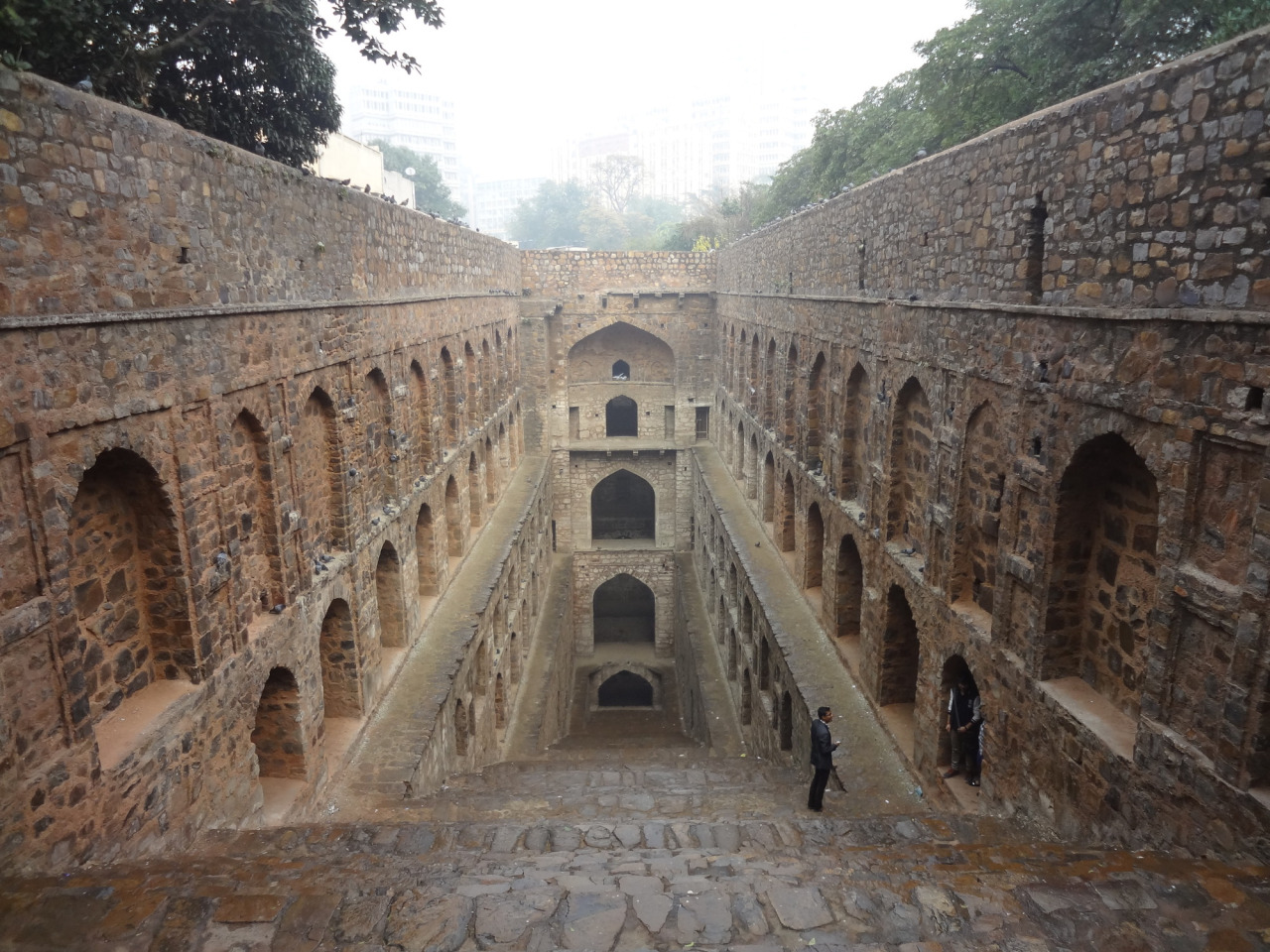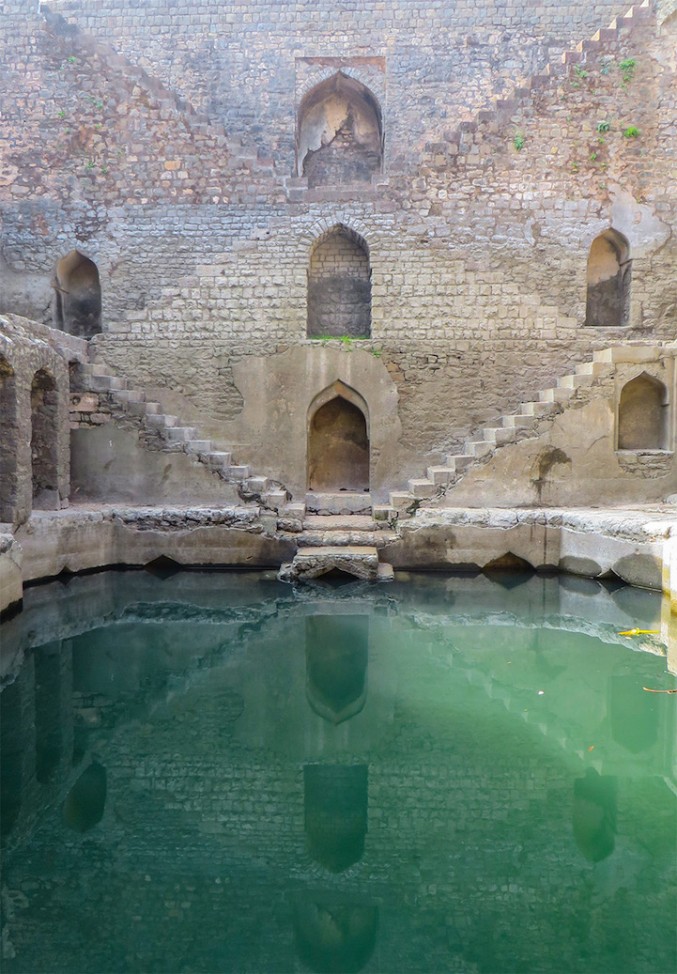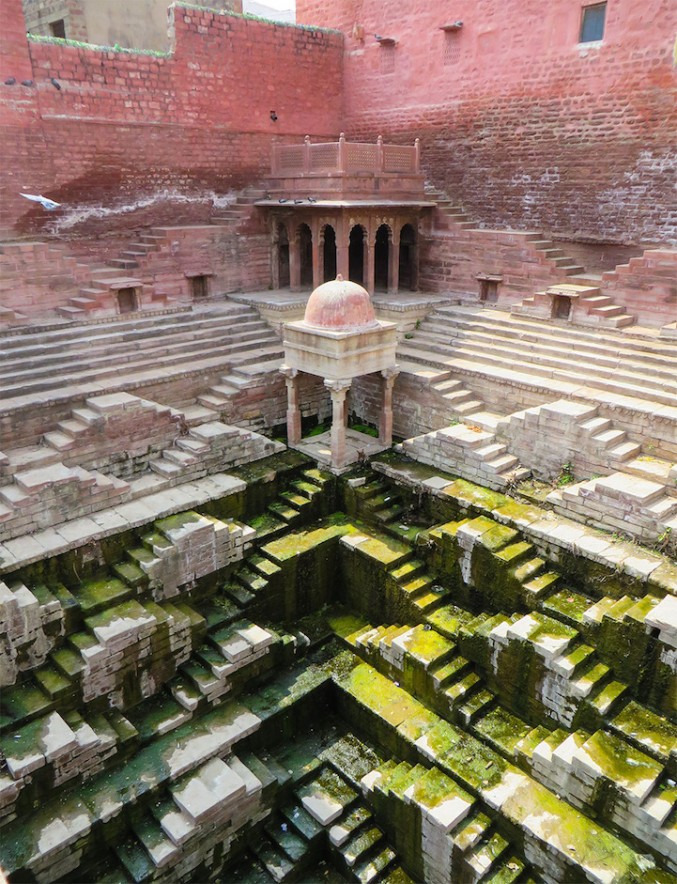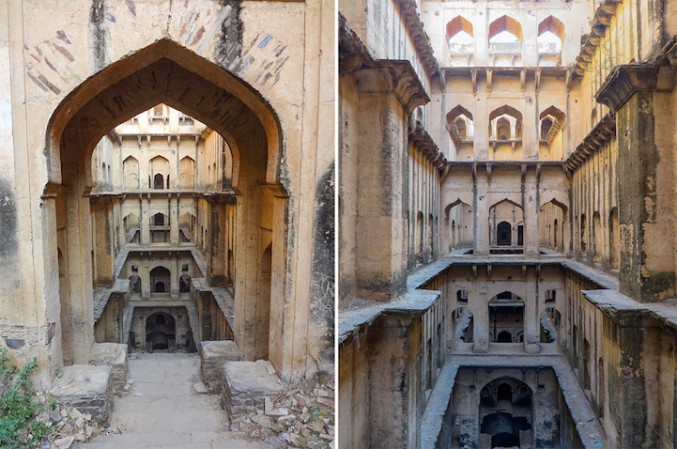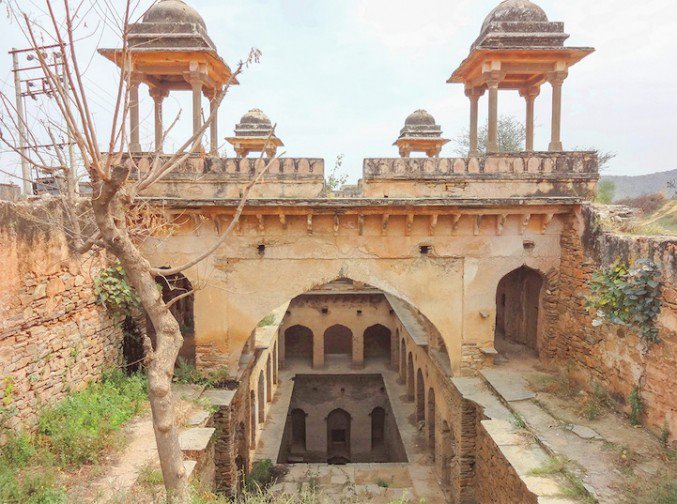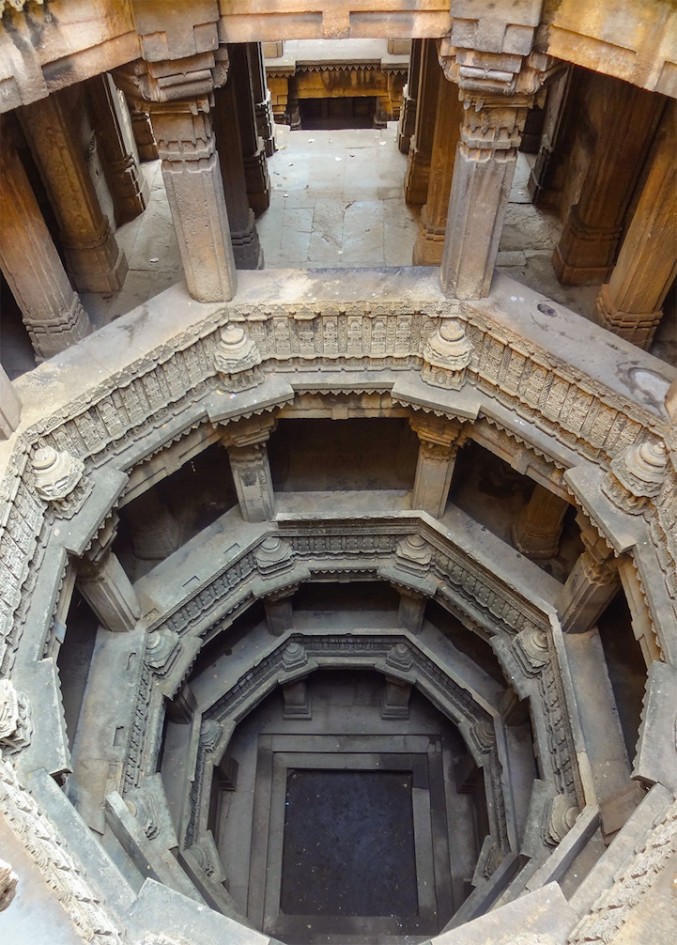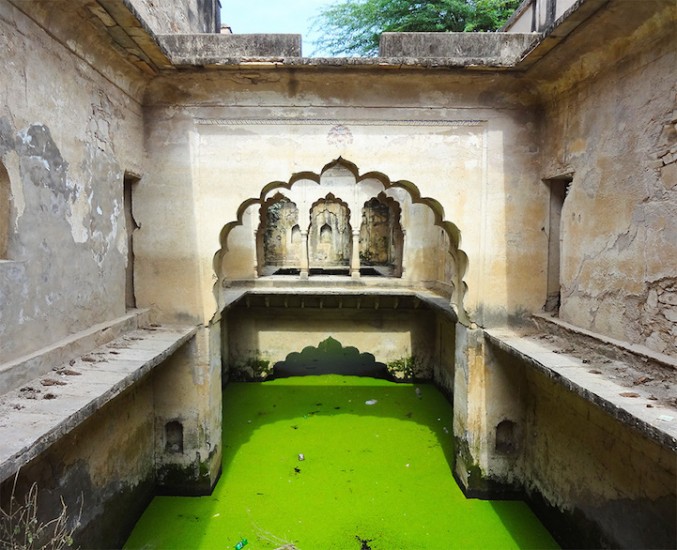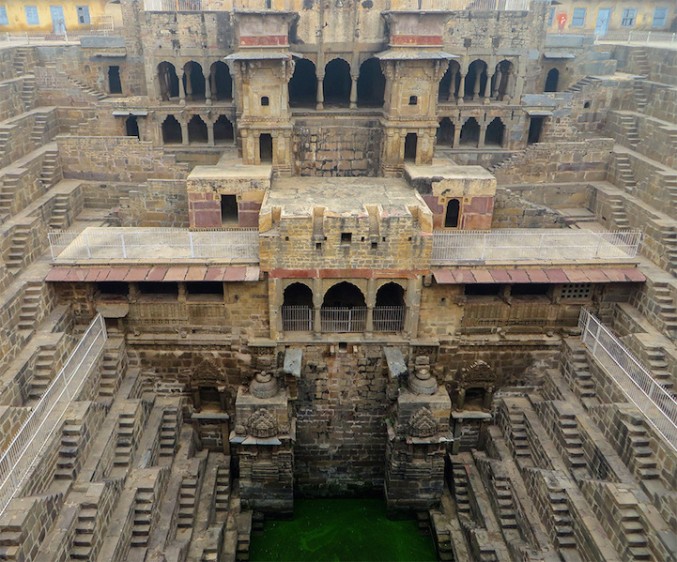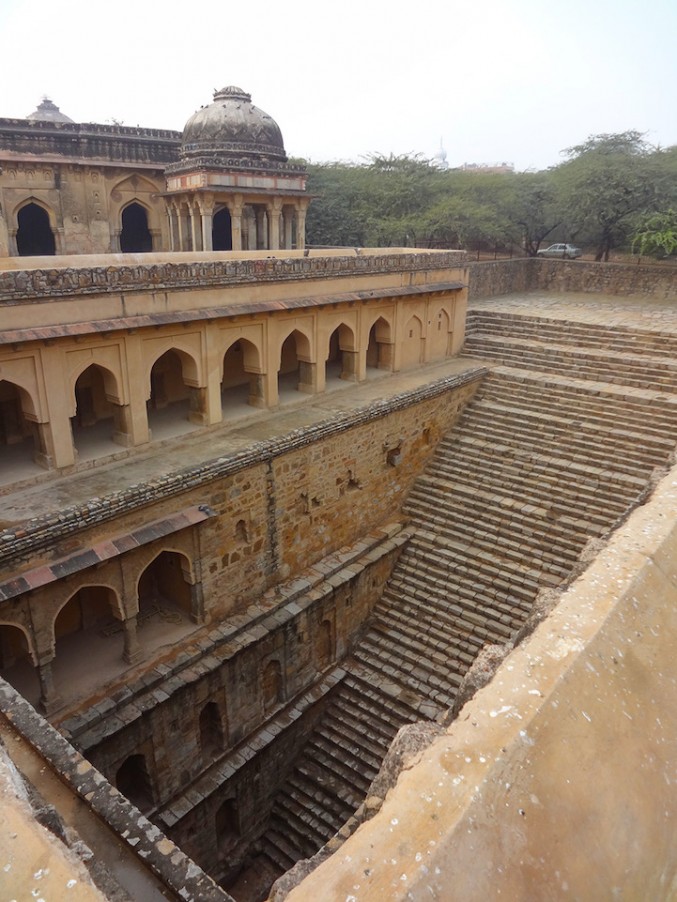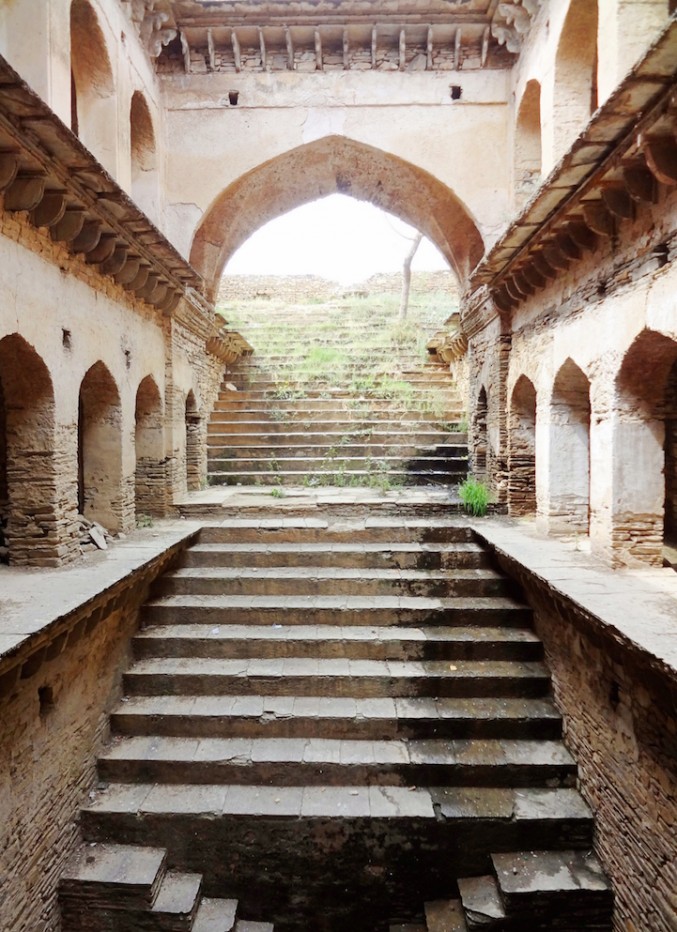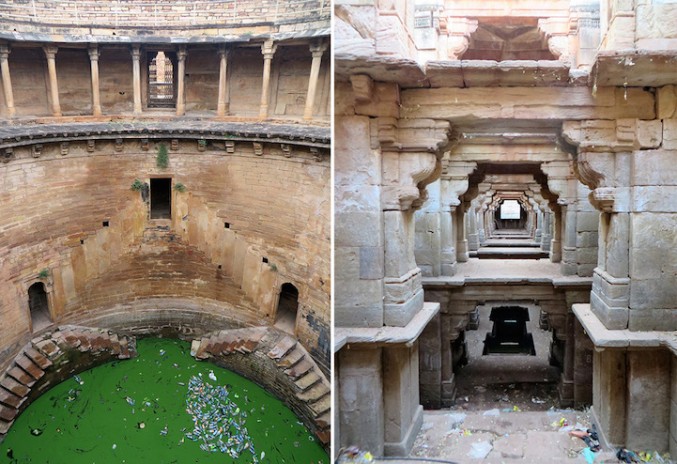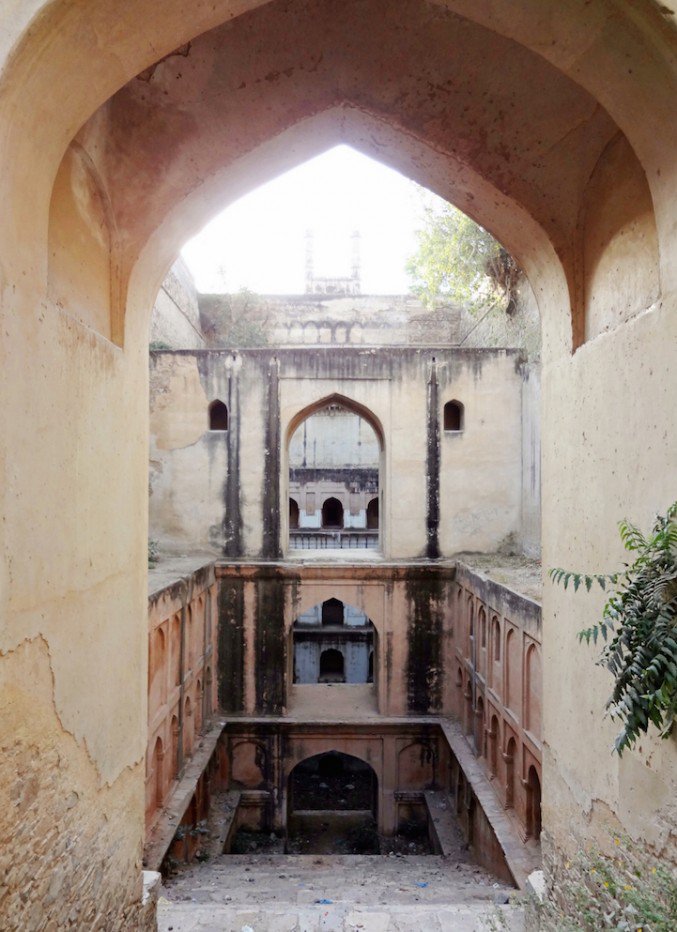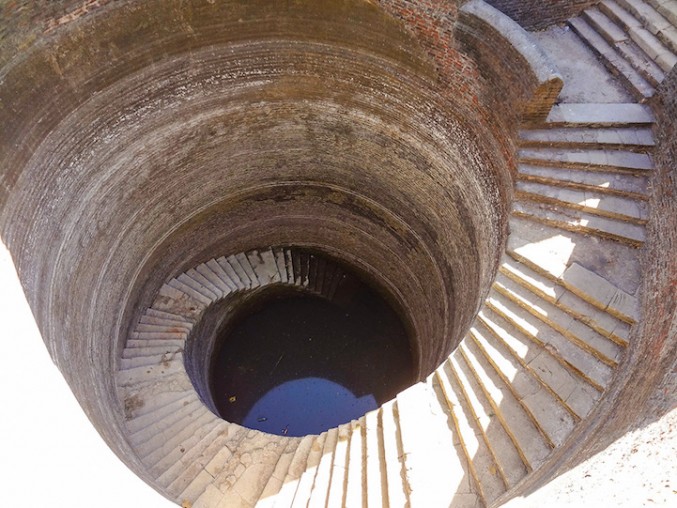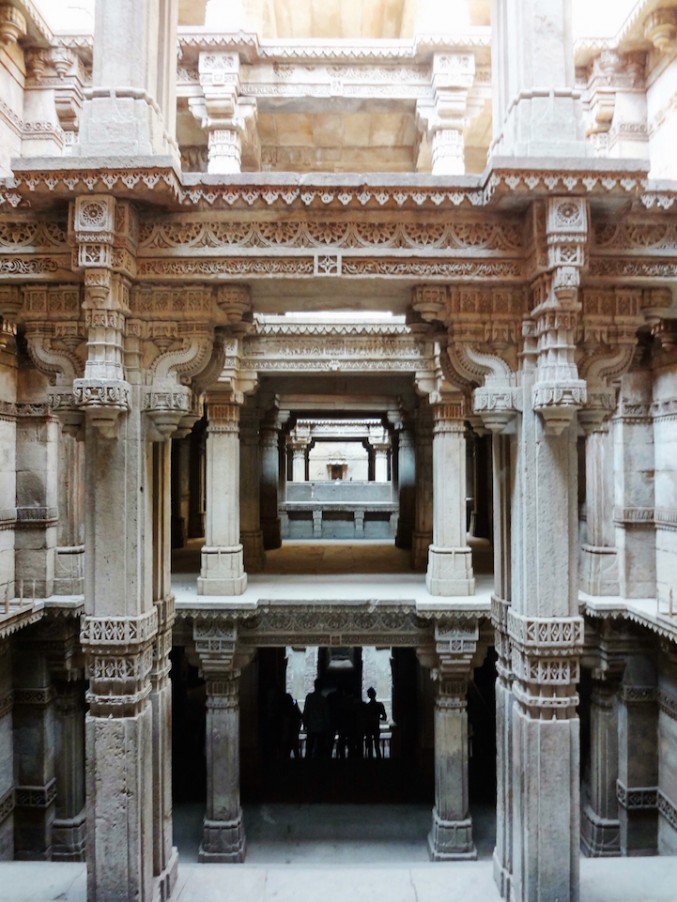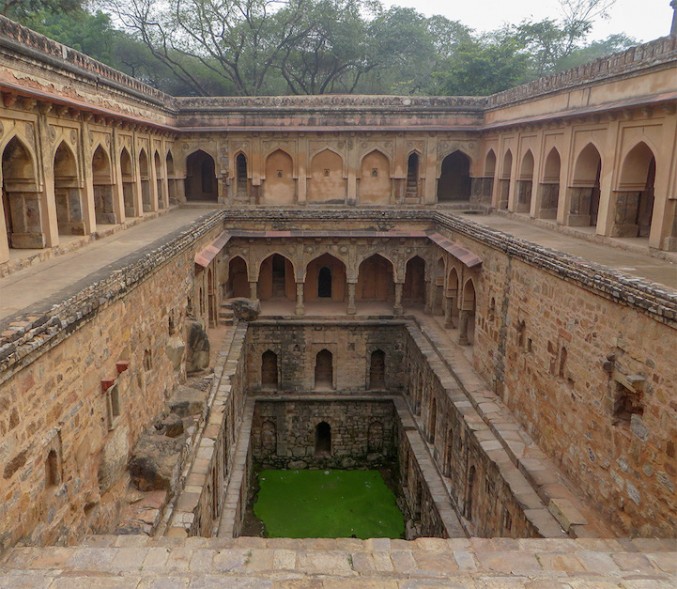Chicago journalist Victoria Lautman has spent four years photographing at 120 sites around India. Called stepwells, these centuries-old structures consist of deep wells that can be accessed via staircases plunging several stories underground. Those places look like gates to the underworld, but were actually designed at first as a way to access water in the driest regions.
“Construction of stepwells involved not just the sinking of a typical deep cylinder from which water could be hauled, but the careful placement of an adjacent, stone-lined “trench” that, once a long staircase and side ledges were embedded, allowed access to the ever-fluctuating water level which flowed through an opening in the well cylinder. In dry seasons, every step—which could number over a hundred—had to be negotiated to reach the bottom story. But during rainy seasons, a parallel function kicked in and the trench transformed into a large cistern, filling to capacity and submerging the steps sometimes to the surface. This ingenious system for water preservation continued for a millennium.” Did say Laura Lautman to Archdaily

